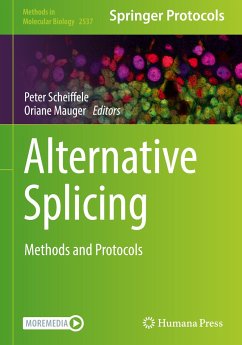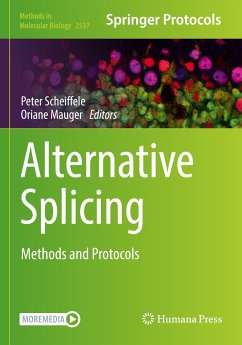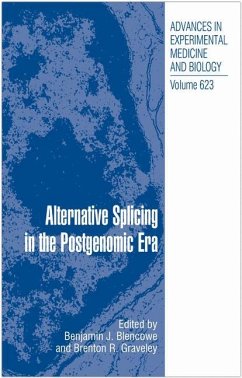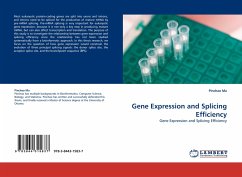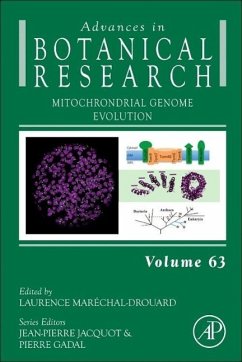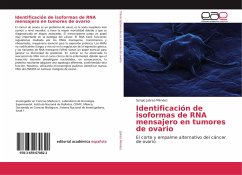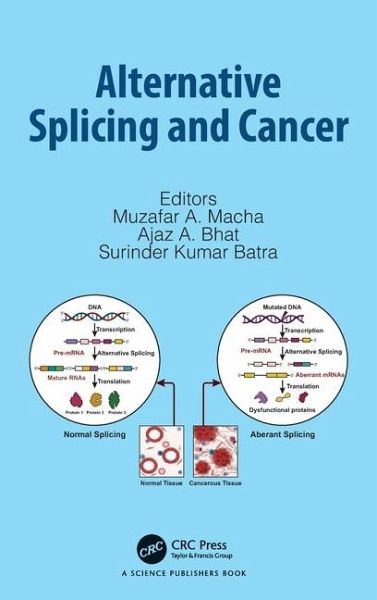
Gebundenes Buch
Alternative Splicing and Cancer
Versandkostenfrei!
Versandfertig in 1-2 Wochen

PAYBACK Punkte
93 °P sammeln!




This book "Alternative Splicing and Cancer" explores the crucial role alternative splicing, a post-transcriptional process, plays in human health and diseases, particularly cancer.
Muzafar A. Macha, currently an Assistant Professor and Ramalingaswami Fellow at Watson-Crick Centre for Molecular Medicine, IUST, Kashmir, India, possesses a strong background in Biochemistry, Head and Neck Cancers (HNCs), and therapeutic modalities development. He previously served as a postdoctoral fellow and later as an Assistant Professor at the University of Nebraska Medical Centre (UNMC), leading an independent HNC research group. His notable contributions, recognized with multiple awards, include the identification of deregulated signaling pathways and innovative therapeutic strategies, published in esteemed journals. Ajaz A. Bhat, a staff scientist at Sidra Medicine, Qatar, has an extensive background in peptide-based vaccine development, deregulated signaling pathways, and drug targets for various cancers. After earning his Ph.D. from AIIMS, India, he undertook postdoctoral training at Vanderbilt University Medical School, USA, expanding his understanding of colorectal, gastric, and esophageal cancers. His high-impact research, published in prestigious journals, earned him recognition as an outstanding researcher, and he actively serves on several immunology and cancer societies' editorial and review boards. Surinder Kumar Batra, Chair of the Biochemistry and Molecular Biology Department at the University of Nebraska Medical Center (UNMC), USA, and Associate Director at Buffett Cancer Center, is renowned for his work on pancreatic cancer pathogenesis. His research focuses on mucins, glycoproteins with potential diagnostic and therapeutic applications. He has developed several genetically engineered models for cancer progression and received US patents on diagnostics and antibodies. With over 400 international peer-reviewed publications, he has trained 100+ scholars.
Produktdetails
- Verlag: CRC Press
- Seitenzahl: 212
- Erscheinungstermin: 3. Mai 2024
- Englisch
- Abmessung: 240mm x 161mm x 16mm
- Gewicht: 487g
- ISBN-13: 9781032196596
- ISBN-10: 1032196599
- Artikelnr.: 70119098
Herstellerkennzeichnung
Libri GmbH
Europaallee 1
36244 Bad Hersfeld
gpsr@libri.de
Für dieses Produkt wurde noch keine Bewertung abgegeben. Wir würden uns sehr freuen, wenn du die erste Bewertung schreibst!
Eine Bewertung schreiben
Eine Bewertung schreiben
Andere Kunden interessierten sich für




